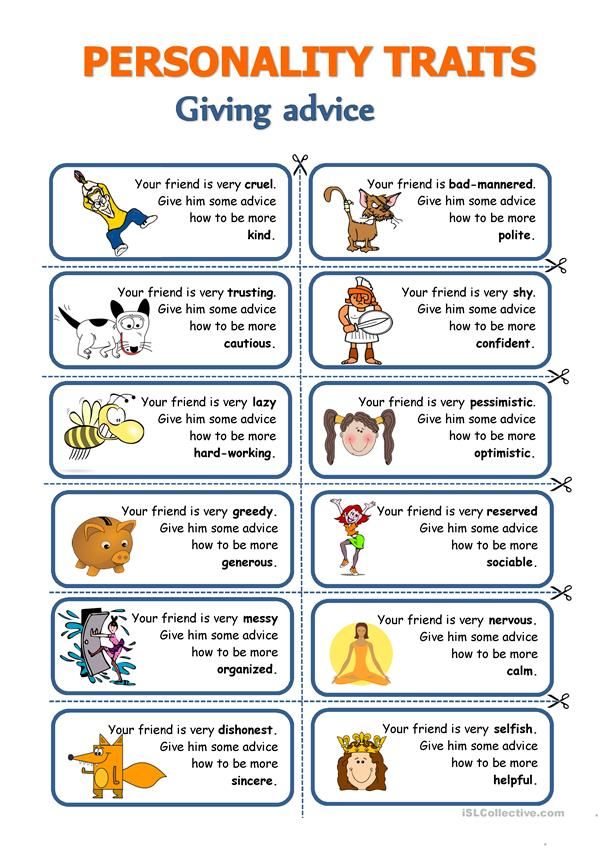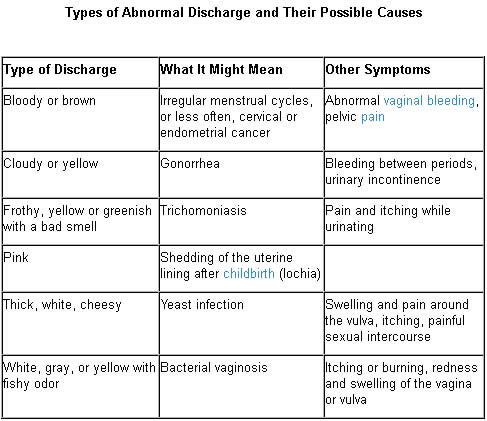How to make your child well mannered
8 Practical Ways to Teach Your Children Good Manners
Small children can make a lot of noise in public places. Usually, such behavior by children is considered ill-mannered, yet some people might not recognize in the moment how much creativity and patience some parents need to bring up their children properly.
How to Teach Your Children Good Manners Effectively?
To many, being a well-mannered person is important. However, not many people really understand that it is much easier to start teaching children good manners since young age than reap the fruits of permissiveness in the future. What should parents do to teach their children good manners easily? Here are several practical recommendations to be used by parents to start investing time and effort in their kids’ good conduct starting in early childhood.
Nurture respect and sensitivity.
Respect towards other people is the basis of good manners, and sensitivity is a root of respect. In this case, you as a parent are responsible for growing sensitivity in your children. In many cases, sensitive children will be more successful in communicating with other people. Don't neglect your children's sensitivity, and nurture their understanding of respect by emulating respectful behavior towards others.
Introduce politeness from a young age.
If you want to teach your children good manners, it is very difficult to imagine this process without such polite phrases as “please,” “thank you,” and “excuse me” in everyday communication. You may introduce these phrases from a young age when your children just start speaking. Doing so could make it much easier for your children to understand their meaning and what the purpose is for using such phrases. The earlier you start teaching children these simple forms of politeness, the better the results are likely to be into the future.
Show your personal example.
The best way for parents to teach children good manners is to be well-mannered persons by themselves. Children look to their parents for leads on how to behave. If you are an ill-mannered person, your children may pick up your behaviors. Therefore, if you want to bring up well-mannered children, don’t forget to be polite with other persons, relatives, and children as well. In this case, you may be pretty sure that your children will take such behavior as a model and use it every day in each situation.
If you are an ill-mannered person, your children may pick up your behaviors. Therefore, if you want to bring up well-mannered children, don’t forget to be polite with other persons, relatives, and children as well. In this case, you may be pretty sure that your children will take such behavior as a model and use it every day in each situation.
Don’t forget about personal boundaries.
Although some of us dream about a perfectly polite society, parents should not forget that each person, including their children, has his or her own personal boundaries which must be respected. True respect for other people is impossible without strong personal boundaries. Therefore, don’t forget to teach your children to know how to say "no" in different situations. Help your children understand and formulate their own personal boundaries, as well as how to protect them.
Set clear expectations.
Children should know how to behave in different situations since early childhood. While a young child doesn’t understand certain rules of behavior in different encounters, it is very difficult to teach him/her good manners. Therefore, try discussing with your children what behavior you expect from them in particular scenarios, especially if a situation is relatively new for them. For example, you should explain how to behave when you are going to a doctor, or plan a visit to your relatives, etc. Be specific; only in this case, you will develop a clear mutual understanding in this aspect.
Therefore, try discussing with your children what behavior you expect from them in particular scenarios, especially if a situation is relatively new for them. For example, you should explain how to behave when you are going to a doctor, or plan a visit to your relatives, etc. Be specific; only in this case, you will develop a clear mutual understanding in this aspect.
Acknowledge your children.
While most adults appreciate having time sans-children, it's important to include children in various adult (yet kid-appropriate) situations. Moreover, such situations should not be avoided because they help to socialize children as soon as possible. Hence, each similar situation can be treated as a good source of practical experience. You will have an excellent opportunity to explain to your children some rules about the level of permissible noise in public place, respect for property and privacy of other people, etc. Certainly, such experience is very helpful in the process of teaching children good manners.
Correct your children “on the spot.”
Even if you explained to your children all possible variants of “do’s” and “don’t's,” it doesn’t mean that children follow them without any troubles. Young kids may just want to see how far they can go in what parents will allow them. However, even if your children don’t want to obey certain rules previously discussed with them, it doesn’t mean that you should let it slide. Correct your children at the moment, for example, if your children want to offend a younger child. In this case, it is necessary to stop aggression to prevent potential troubles; though at that moment, you may seem harsh to your kid, in the end, it will pay off.
Correct your children politely.
If your children are too young to speak correctly, you should correct them each time when it is necessary. However, pay your attention to the tone of your voice while correcting your children’s language. Certainly, adults shouldn’t speak with small children in their “childish” language, but it doesn’t mean rough corrections are fine. Speak to your kids in a gentle voice, even if they make some mistakes, and try to reward them for speaking, say a couple of kind words, and only then note some errors to correct not to push them away, and not to discourage their efforts.
Speak to your kids in a gentle voice, even if they make some mistakes, and try to reward them for speaking, say a couple of kind words, and only then note some errors to correct not to push them away, and not to discourage their efforts.
The process of bringing up well-mannered persons who will be socialized successfully is difficult and needs a lot of time and effort. However, you as a parent are responsible for all parts of your children’s lives, and it is up to you to find efficient ways to turn them into self-reliant and self-supporting individuals. You will be able to cope with such a difficult task if you have enough patience, love your children, and if you are a polite person by yourself. In addition, all our practical recommendations will help you in this way. Good luck!
About the Author:
Kara Erhart is a professional team building coach, ethics teacher and content marketer with 5 years of experience. Also, she works as a website analyst for PaytoWriteEssays.
How to Raise a Child with Good Manners
Parenting resourcesGood manners are behaviors exhibited to show respect. Parents can teach kids good manners with these tips.
Posted on
Updated on
Good manners are behaviors exhibited to show respect. As new parents, there are milestones that you actively work on with your kids, so you know they are physically developing correctly. Some of these include their first smile, rolling over, grabbing, hugging, eating their first solid food, sitting up, crawling, pulling up, and walking.
If you want to raise a child with good manners, you can approach it much like you would physical milestones. Make a list of the good manners you want your kids to learn, set an appropriate timetable for these developments, and then actively work with your children to help them reach these goals.
If your relationship allows, discuss these manners with your co-parent, so you can both actively participate in teaching your children. Consistency between homes will help your children learn good manners more quickly and effectively.
Consider the stages of moral growth for teaching manners
Just like there are stages of physical growth for kids, there are stages of moral growth. These stages can help you set expectations for the type of manners appropriate to teach your children and at which age. Dr. Sears, a well-known author of dozens of best-selling books on parenting, describes the five stage of moral growth of children as follows:
Stage 1 – Infancy
An infant cannot moralize, too early to start teaching manners.
Stage 2 – Toddlerhood
Toddlers can’t judge right or wrong yet.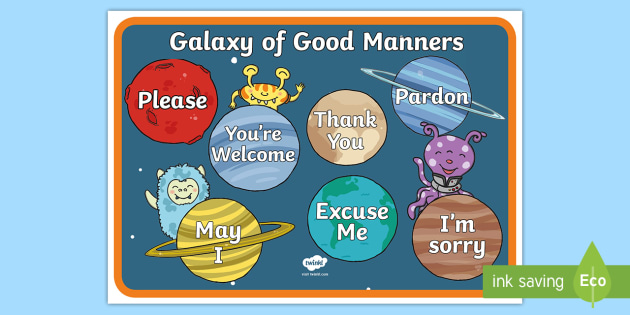 They are directed by what others tell them to do.
They are directed by what others tell them to do.
Stage 3 – Preschool (3-7 years of age)
Preschool children start to understand values and manners. They understand how their actions affect others and how actions have consequences.
Stage 4 – School-age (7 to 10 years of age)
School-age children have a strong sense of fairness, understand the necessity of rules and manners, and want to participate in making rules.
Stage 5 – Pre-teens and teens
Pre-teens and teens are capable of abstract reasoning. They start making decisions based on the manners and values that make the most sense for themselves and society.
Manner milestones by age
Once you understand what kids are mentally and emotionally capable of learning at each stage of life, you can set appropriate milestones for your children to learn manners that are most important to you and your co-parent.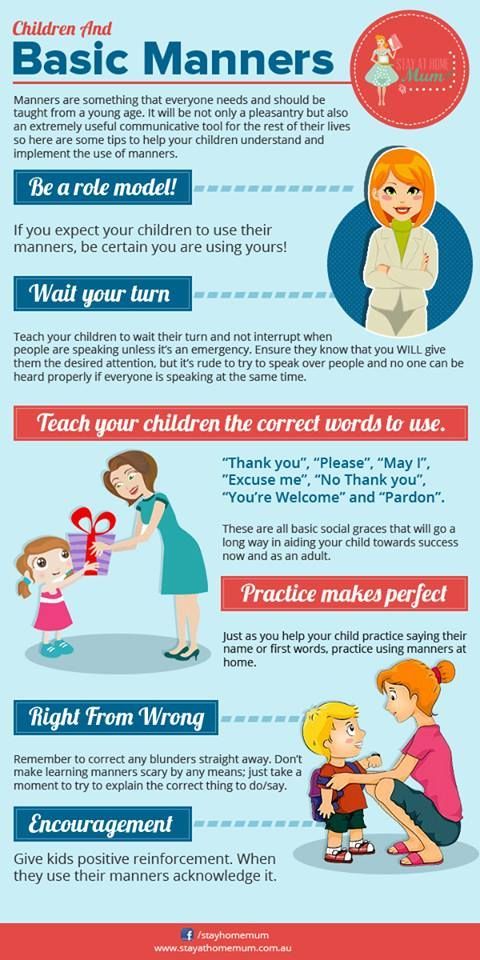
Toddlerhood
While toddlers can’t yet judge right or wrong or understand cause and effect, they can imitate what we say and do. Once your child becomes a toddler, you can start introducing polite language like please, thank you, I’m sorry, excuse me, sir, or ma’am. You can also show toddlers the importance of a positive attitude by delivering directions to your child with a smile and polite language.
Pre-school
Once children start to understand that actions have consequences, you can begin the process of teaching manners that show respect for others. Some appropriate manners to start introducing to kids at this age include:
- How to take turns
- The concept of sharing
- Polite greetings such as hello and goodbye
- Covering your mouth when you cough or sneeze
- Not talking with your mouth full
- Asking someone to pass something at the table rather than reaching over them
School-age
School-age children are ready to take on larger challenges related to respect and gratitude. You and your co-parent can start teaching your children to thank other adults, such as their friends’ parents, for having them over or inviting them to a meal. This is an appropriate age to teach your children to look people in the eye when speaking to them and answer their questions politely. You can also show your kids how to introduce themselves when they meet a new person, teach them to address others by name, and instill the importance of respecting the belongings and privacy of others.
You and your co-parent can start teaching your children to thank other adults, such as their friends’ parents, for having them over or inviting them to a meal. This is an appropriate age to teach your children to look people in the eye when speaking to them and answer their questions politely. You can also show your kids how to introduce themselves when they meet a new person, teach them to address others by name, and instill the importance of respecting the belongings and privacy of others.
Teen years
When your child enters their teenage years, you and your co-parent must continue modeling good behavior and reinforcing the basics of what you expect. Additionally, you should take advantage of opportunities to get your teen out of their comfort zone and into the community. Volunteer opportunities are a great way for your teen to gain perspective and continue to learn empathy towards others.
Good manners are part of the foundation of building healthy relationships
At any stage, modeling good manners for your children, including how you and your co-parent treat one another, can help instill these behaviors in them.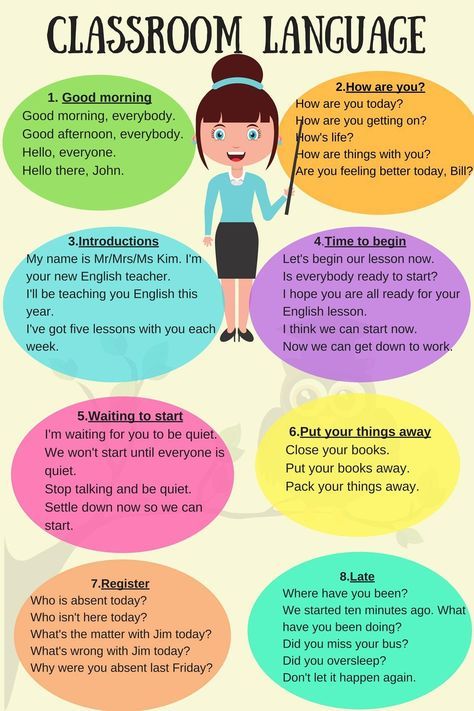 Learn more about teaching by example in our article, Acts of Kindness for Kids.
Learn more about teaching by example in our article, Acts of Kindness for Kids.
TalkingParents blogs are for informational purposes only and should not be construed as legal advice. Always consult with a qualified attorney regarding legal matters.
Get all TalkingParents resources sent straight to your inbox.
Sign up for resourcesHow to raise a well-mannered child
How many times have we heard from the older generation: "what youth" and "children are now ill-mannered", and "in our time there was no such disgrace"! Observing the current situation, one can notice that modern children do not behave the way exemplary pioneers behaved twenty or more years ago: they do not give up their seats in public transport, interrupt the stick in familiarity and do not respect elders, use obscene language in public places and etc. This list could go on, but still, it is necessary to find out the reason for such behavior and attitudes, and, importantly, not to judge everyone by the example of one. nine0003
This list could go on, but still, it is necessary to find out the reason for such behavior and attitudes, and, importantly, not to judge everyone by the example of one. nine0003
Some parents believe that raising a child should be taken care of when he grows up, and some shift these responsibilities to the school and caregivers. But it should be remembered that the main life principles and habits, as well as the global perception of the world, are already formed by the age of 7-8, and in elementary school you will have to appeal to willpower in order to form new habits - and it’s getting harder every year. And since parents are more interested in the education of their child than any institution, they should devote as much time as possible to education. nine0003
Where to start?
1. Start parenting at an early age... Or at least "right now." The sooner you start the process, the easier it will be for you. Scientists advise starting at 12 months, when the child begins to explore the world and can master good manners.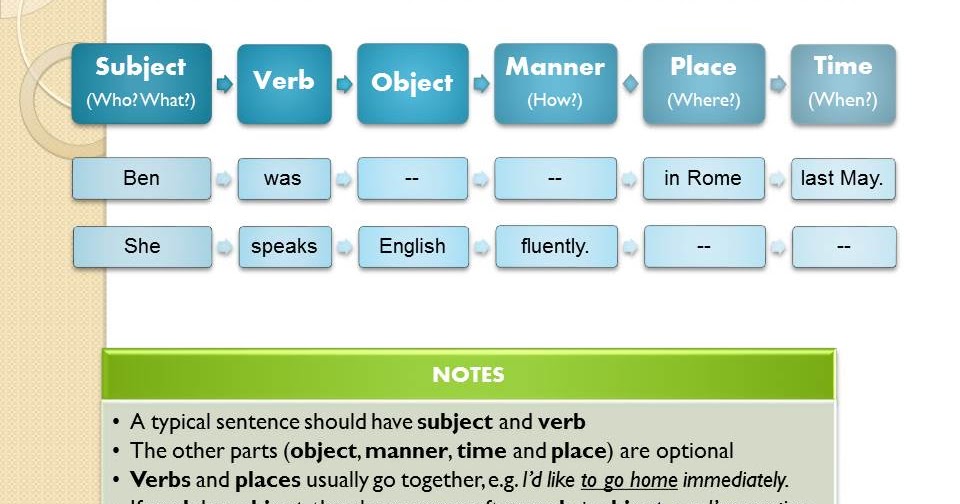
2. Good example. First of all, these are people who take care of the child from birth and are present in his life every day. Before you start educating a child, start with yourself. For example, tell your child "thank you", "please" and (!) "I'm sorry" from a very young age. After all, a child will not be able to behave decently in society, given that his father or mother does not adhere to the norms of etiquette. The child should see a positive example, so try not to give freedom to feelings in the presence of the child and monitor your behavior. nine0003
3. Do not scold too much and do not allow the child to be insulted for any reason. An offended child, who was constantly insulted or oppressed, will borrow this model of behavior in his future family. And breaking this circle will be quite difficult. Instead of "how are you..." use "I-messages": "how upset I am"... "how unpleasant this is"... "I don't even know what to think after such an act. " And pay attention not to the qualities of the child's personality: "you are lazy", but to his actions "you were too lazy to do it slowly, so it turned out sloppy, and you have to redo it." nine0003
" And pay attention not to the qualities of the child's personality: "you are lazy", but to his actions "you were too lazy to do it slowly, so it turned out sloppy, and you have to redo it." nine0003
4. Punish according to the offense. Ideally, it would be good to treat the child as an unfamiliar adult and talk instead of instant punishment. It is already possible to find out from an older preschooler what is the reason for his behavior or what he wanted to achieve. Show him the other, negative side of his act and discuss what exactly he is doing wrong. But the punishment will be appropriate if, after the conversation, the child’s behavior does not improve. Types of punishment vary according to the age of the child. So, for older children, getting rid of their favorite gadget for a few days will be a punishment. And it’s enough for the younger ones to be motionless for a while (sit on a stool for 5 minutes, stand in a corner, be in a room without toys). The only thing that parents should remember is that in no case should they punish the child physically. After all, such harsh punishments can develop into complexes and resentments that will remain in a child for life. nine0003
After all, such harsh punishments can develop into complexes and resentments that will remain in a child for life. nine0003
5. Teach your child to share. The child must be clearly aware that he is in society and among people there are certain norms, rules, traditions of behavior. The child should not be greedy, especially towards guests. But, in turn, it should be recalled that there are things that are not customary to share with someone: underwear, a toothbrush, etc.
6. Continually teach what is right and what is wrong. Each family has its own rules of politeness, and they need to be explained sequentially. Praise and gratitude will be the best way for learning: "thank you for being...", "you are so attentive, you put her favorite cup in front of Aunt Sveta. Well done!". Praise causes strong emotions, and therefore, the behavior that led to praise will be remembered more reliably. nine0003
7. Give your child certain responsibilities. This does not mean that the child should be left with all the housework. Distribute responsibilities among family members so that the child sees the role his help plays in your life. Also, you will teach your child to understand that there are responsibilities everywhere and always, and you can’t run away from them: in kindergarten, at work, at home. Domestic duties are an important feature of a polite person: after all, he takes care of the family.
This does not mean that the child should be left with all the housework. Distribute responsibilities among family members so that the child sees the role his help plays in your life. Also, you will teach your child to understand that there are responsibilities everywhere and always, and you can’t run away from them: in kindergarten, at work, at home. Domestic duties are an important feature of a polite person: after all, he takes care of the family.
8. Reward good behavior. This is not a physical reward: technology, electronics, toys, sweets. The main thing is your praise and encouragement. If a child hears that today he did the right thing when he helped his grandfather cross the road, he will feel that this is good and will try to do so further. Also, pay your child's attention to other people's behavior. Of course, you should not reproach the child that the neighbor Vanechka helps his mother wash the dishes, but your child does not. On the contrary, focus on the positive: "You see, uncle gave way to aunt. That's right, because men are strong and should always give way to women in public transport." nine0003
That's right, because men are strong and should always give way to women in public transport." nine0003
9. Try to find an explanation in a way that suits the child's temperament. The types of temperament are described in detail in our article. Good luck!
Yana Kosyachenko
7 tips for parents on how to raise an unspoiled and grateful child
September 1, 2015 Tips
Every parent strives to raise a smart, capable, kind, sympathetic child, but not everyone succeeds. Children grow up spoiled, capricious, arrogant. In a word, spoiled. In this article, we will advise what to do so that this does not happen to your child. nine0003
As responsible parents, we want to raise our child to be as prepared as possible for an independent life in this unpredictable world. But let's be honest: what many people mean by "preparing for independent living" is just a good formal education. From an early age, the child is taught mathematics, writing, science and other sciences, and a little later they are sent to a strong school.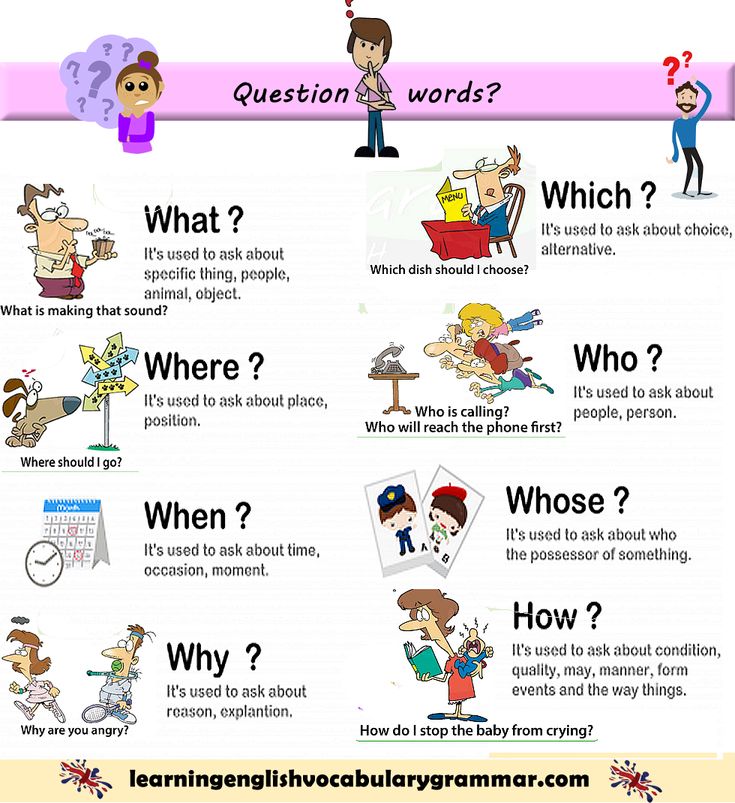 Of course, all this is useful and will definitely come in handy in adulthood, but is it enough to raise an unspoiled child? nine0003
Of course, all this is useful and will definitely come in handy in adulthood, but is it enough to raise an unspoiled child? nine0003
Let's count how many times have you seen smart and educated children who are obsessed with themselves and who are not even interested in the opinions, desires and interests of those closest to them? How many times have you come across intelligent children who do not put their parents in anything (disrespect, rudeness, arrogance, arrogance, lies)? And how many times have you met excellent students who, already in adulthood, are completely dependent on their parents? Such children are often called spoiled. And the truth is that there is no such gene that could "spoil" the child. The only ones who can do this are his parents. nine0003
It is worth understanding one thing: a sympathetic, caring, disinterested child does not happen by chance, it is only the merit of his parents. Because it is they who have a key influence on the baby. Your child is a reflection of yourself.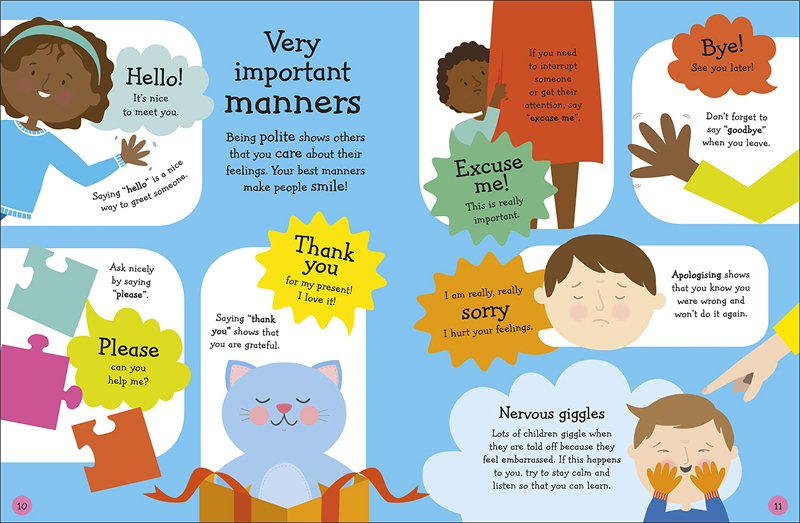 Therefore, the best advice for raising an ideal child is to be a good example for him. But if everything was so simple, then there would be no problems with education.
Therefore, the best advice for raising an ideal child is to be a good example for him. But if everything was so simple, then there would be no problems with education.
Here are some tips that can help you raise a generous, caring and responsible person. Before you read them, ask yourself what character traits do you want to see in your child in a few years? Let your answers become your cherished goal that you will pursue while raising your child. nine0003
1. Love, but set boundaries
Raising an unspoiled child is always a balancing act between two extremes: love and limits, warmth and strictness, generosity and rejection.
Every morning ask yourself: "If I could teach my son (daughter) just one thing today, what would it be?" Check if the answer is consistent with your goals that you are pursuing in education. In the evening, ask a security question: “What did I teach my child today?”. nine0003
2. Stop patronizing!
Good parenting is not about making sure your child is happy.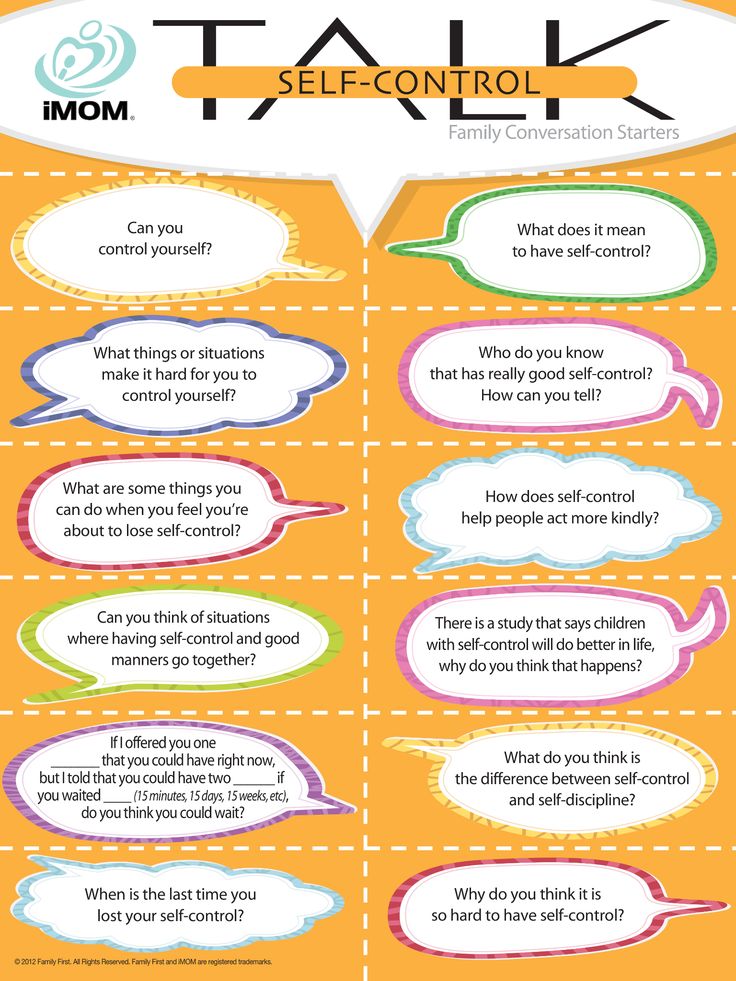 It's more about teaching him how to deal with setbacks, rejections, mistakes, and adversity.
It's more about teaching him how to deal with setbacks, rejections, mistakes, and adversity.
Constantly shielding the child from anything that might cause frustration will not help him master this critical skill. This will not teach him to overcome difficulties, relying only on his own strength.
Stop patronizing your child. Give him the opportunity to learn to manage his life on his own, while mistakes are not so painful. nine0003
3. Learn to empathize
Unspoiled children are taught not to always put themselves first. Instead, they know how to take into account the opinions, desires and interests of the people around them (especially those close to them).
Empathy is an ability that enables a small person to think and look at what is happening from the position of another. This is the foundation for the development of such character traits as respect, restraint, kindness, selflessness.
4. Develop financial responsibility
One of our main tasks as parents is to teach a child to live self-reliantly. This means that we must teach him to manage his finances on his own, and not wait for endless handouts from his parents.
This means that we must teach him to manage his finances on his own, and not wait for endless handouts from his parents.
If you feel like a "golden ATM" for your children, then the smartest thing to do is close your wallet.
An uncorrupted child is one who understands the words "no" and "not now."
5. Say no without guilt
Constant satisfaction of a child's desires will not help to teach him that life will not always go according to his plan. Add the word "no" to your vocabulary and don't feel guilty about having to say it. Believe me, in the long run, your children will still be grateful to you for this.
6. Learn to give, not just receive
Give your children the opportunity to understand that they can change lives simply by giving or doing something for other people. Indeed, many of them do not even realize that this is possible. nine0003
Somewhere I came across an article that said that generous children are not only less selfish and more appreciative of others, but also happier in life.